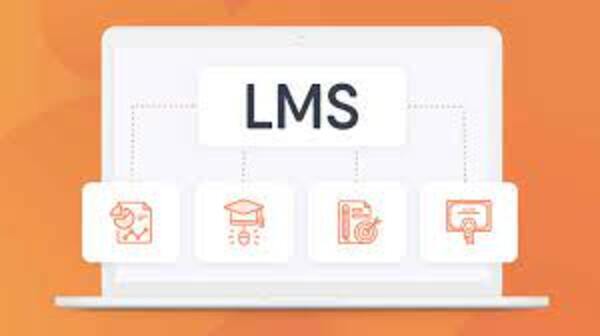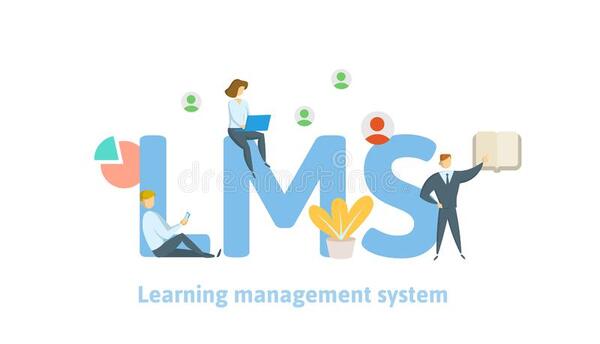Around the world, more and more businesses are opting to deliver their training online. In fact, the LMS training market is growing very fast. LMS means a learning management system. It is a software program or web-based technology used to plan, carry out, and evaluate a particular learning process. Learn more about LMS by reading this article.
LMS In Education: What Does It Mean?
Nowadays, people use computer-based technologies in many facets of their lives, making them a natural part of the world. Nowadays, there is an immeasurable rise in the number of middle schools utilizing online education as a component of a blended learning strategy.
According to statistics, middle schools use LMSs even more frequently than universities or colleges do, making schools the largest users of LMSs in the educational sector.
Furthermore, they had a very positive LMS experience since 92% of LMS users in the survey said they were extremely satisfied with the system in place at their school.
Types Of An LMS
The various LMS deployment choices include:
- Cloud-based
- Self-hosted
- Desktop application
- Mobile application
Cloud-based LMSes are hosted on the cloud and often follow a software as a service (Cloud-based LMS vendors handle system upkeep and carry out any necessary technical updates or upgrades under the Software as a Service (SaaS) business model.
A username and password are all that are needed for online users to log in at any time and from any location.
Self-hosted LMSes require software to be downloaded by the user. Greater customization and creative control are possible with the self-hosted platform, but users are responsible for system maintenance and frequently pay for updates.
Desktop application LMSes are installed on the user’s desktop. The application might still be usable on a variety of devices, though.
Mobile application LMSes support mobile learning and are accessible wherever and whenever through mobile devices. This platform deployment type enables users to participate in and monitor their mobile online learning initiatives.
Benefits Of An LMS In Education
No matter the type of organization using it, learning management systems offer users a wide range of advantages.
Students Are Motivated And Engaged Thanks To LMS In Education
Teenagers will undoubtedly be more engaged in the learning process if a familiar digital environment is created in the classroom. Gamification is the most requested feature for LMS for middle school users, and 26% of them would prefer to have it integrated, which shouldn’t come as a surprise.
Each student receives a badge for participation, successfully completed projects, assessment grades, and other learning metrics through an integrated reward system. It significantly increases engagement and may even cause teenagers to stop playing video games.
LMSs Save A Tremendous Amount Of Time For Teachers And Administration
There is no need to repeatedly teach the material to different students once the educational program has been created in a digital format. LMS for middle school provides self-work space, involving teacher assistance in crucial or challenging circumstances.
LMSs Facilitate Productive Collaboration Between Students And Teachers
Dealing with school projects offline is a traditional choice, but adding your middle school LMS as a discussion board will encourage students to collaborate, manage various projects, and forge stronger relationships.
The Discipline And Flexibility Of Students Are Increased By LMSs
Comparatively speaking, learners who use blended learning strategies need to exercise much more self-discipline. The LMS’s calendar and due dates will be useful.
Students are more accountable for their performance as a result of having more control over the learning process as teachers post the upcoming events.
Additionally, by utilizing a variety of content formats—webinars, podcasts, games, videos, and presentations—students learn how to master a variety of skills at once.
LMSs Offer More Detailed Learning Analytics
The middle school LMS system’s learner analytics feature opens up deeper insights and a wealth of additional data for decision-making. You can track, gather, and analyze any data you require to improve the effectiveness of the learning process.
The in-depth analytics reports cover the following major topics:
- student’s interaction with the material
- time spent on assignments
- most or least rated courses and so much more.

The Educational Process Is Made Secure And Welcoming By LMSs
LMS is more secure than Zoom video calls and other apps because it uses IP blockers, antivirus software, antimalware software, and other security measures to protect users’ data.
In addition, the LMS for middle school typically has a straightforward, simple user interface that doesn’t call for any special training. Typically, all users can navigate the new learning environment with the help of a brief demo session and some prompts.
Who Uses An LMS?
Anybody who’s delivering eLearning courses is using an LMS― and that includes a whole lot more than educational institutions.
Here are some examples of different companies and organizations that use an LMS for training:
- Businesses of all sizes, from large multinational enterprises to small and medium businesses
- Businesses from a wide range of industries, such as healthcare organizations and tech startups
- Government organizations, from the United Nations to your local co-op, government agencies, and regional government offices
- Non-government organizations and nonprofits
- Consulting firms
- Traditional educational institutions (schools, universities, colleges)
- Online and eLearning-based educational institutions
- Independent instructors and coaches
It’s clear that a Learning Management System can serve different training needs. A company might use an LMS to train employees internally, a consultant might use one to train clients on a variety of topics, and an expert might use one to sell their courses online.
The Role Of An LMS For Education
Although LMSs are widely used in many nations, educational institutions are where they are most common. The opportunities offered by an LMS have been shown in studies to change students’ learning habits.
In a 2019 survey, 71% of middle school students said that using digital learning tools helps them learn independently and makes school more interesting, while 60% of high school students said that using these tools helped them prepare for college.
Teachers can play a more facilitative role in a contemporary, more prosperous learning environment given that educational institutions can use an LMS to evaluate traditional skills in new ways.
An LMS In Education Typically Has The Following Key Features:
- LMS in education means the creation of an online course
You should first research how to make an online course in order to gain a better understanding of what LMS means in education. Additionally, creating a course requires knowing how to organize your online course.
- LMS in education means using a variety of LMS integrations
All notifications and messages for a course can be handled by an LMS. When a teacher uploads a new assignment, for instance, an LMS can automatically send a report to all logged-in users. The various LMS integrations are important because they aid LMS in carrying out a number of crucial tasks.
- LMS in education refers to the process of giving out and reviewing homework assignments.
An LMS offers teachers a quicker, easier way to distribute, evaluate, and grade students. An LMS has unique tools that can be used to evaluate completed assignments, correct errors, or provide feedback. For instance, the errors could be highlighted in red, correction notes could be written in the margins, and a progress bar could be added. Teachers are able to grade students consistently and openly while also offering detailed feedback in the modifiable comment section.
- In education, LMS stands for report management.
The reports that the LMS can produce include student engagement, performance, and scores. This information can be used to offer important insights into how well the course material is working.
All of these LMS features demonstrate how to make learning more interesting and interactive.

